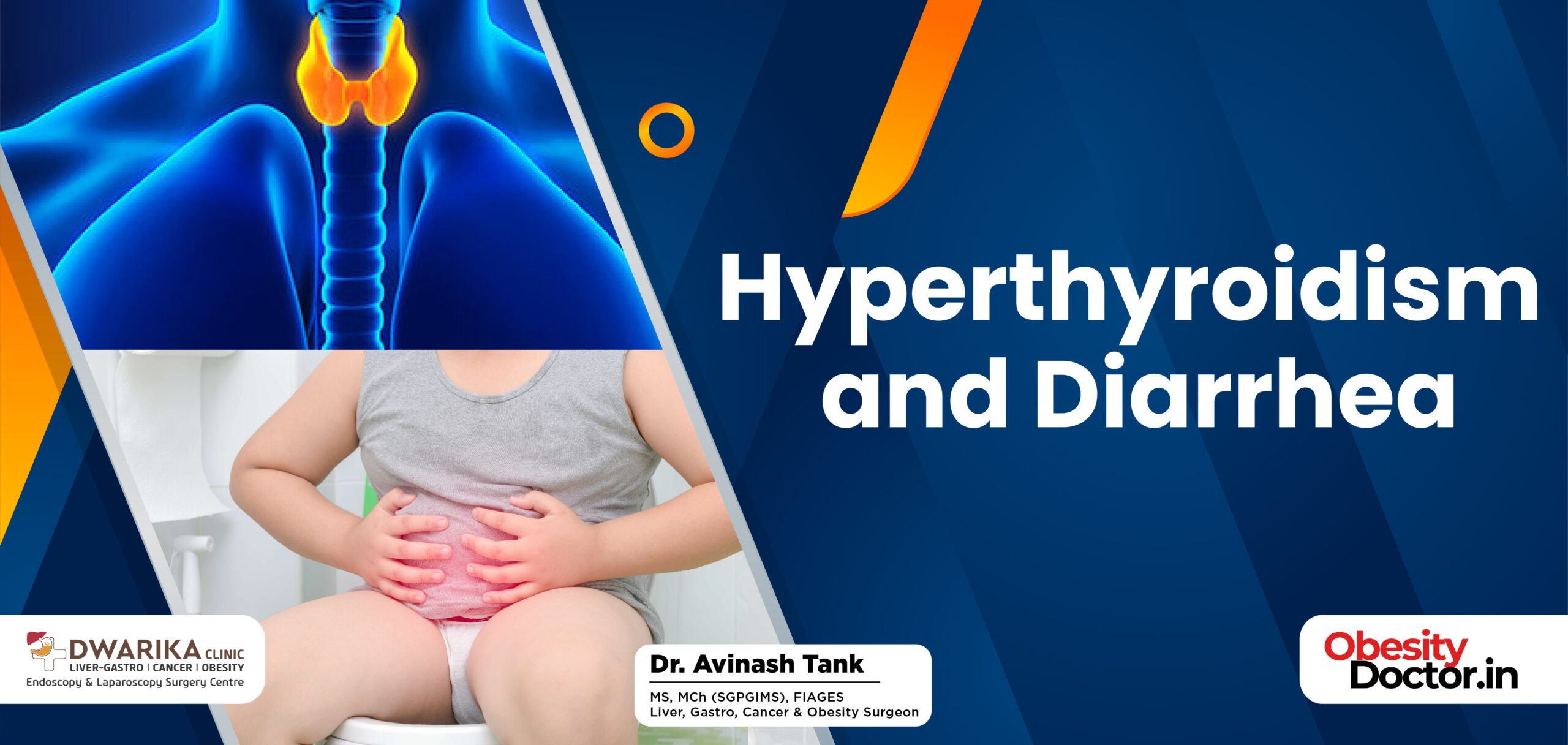
Reading Time: 2 minutes
Hyperthyroidism and Diarrhea. Hyperthyroidism, a condition characterized by the overproduction of thyroid hormones, can manifest with various symptoms affecting different systems in the body.
One such often-overlooked aspect is its potential link to digestive issues, particularly diarrhea.
Causes of Hyperthyroidism and Diarrhea:
The intricate relationship between hyperthyroidism and diarrhea stems from the impact of excess thyroid hormones on the gastrointestinal system.
Elevated metabolism, gastrointestinal hypermotility, malabsorption, pancreatic dysfunction, and bile acid malabsorption are among the primary causes.
Symptoms:
Identifying the connection between hyperthyroidism and diarrhea involves recognizing accompanying symptoms.
Individuals may experience weight loss, increased appetite, rapid heart rate, and fatigue alongside persistent loose stools.
Diagnosis:
Accurate diagnosis requires a thorough examination of thyroid function through blood tests measuring T3, T4, and TSH levels.
Additionally, evaluating symptoms and conducting imaging studies or scans may be necessary to assess the severity and potential complications.
Treatment:
Effectively managing hyperthyroidism often involves a multi-faceted approach. Antithyroid medications, radioactive iodine therapy, and, in severe cases, thyroid surgery are options.
Addressing diarrhea may require dietary adjustments, medication for symptom relief, and management of any underlying causes.
Prevention:
While some cases of hyperthyroidism are due to underlying conditions or genetics, adopting a healthy lifestyle can contribute to overall well-being.
Regular exercise, a balanced diet, and stress management may play a role in preventing or managing hyperthyroidism and its associated symptoms.
When to Consult a Doctor:
Persistent diarrhea accompanied by symptoms like weight loss, palpitations, or changes in mood should prompt a consultation with a healthcare professional.
Timely intervention is crucial for managing hyperthyroidism and preventing potential complications.
Conclusion:
Understanding the connection between hyperthyroidism and diarrhea is essential for comprehensive healthcare.
By recognizing the interplay of hormonal imbalances and their impact on the digestive system, individuals can seek timely medical attention, leading to effective management and an improved quality of life.
